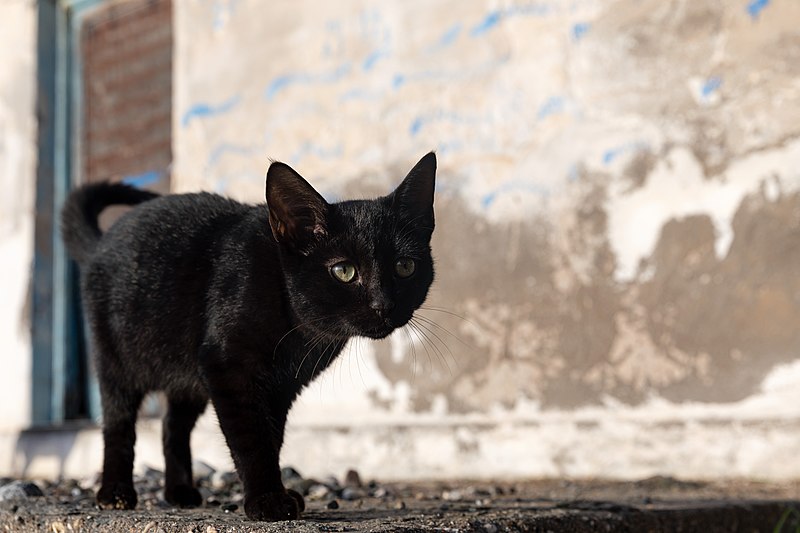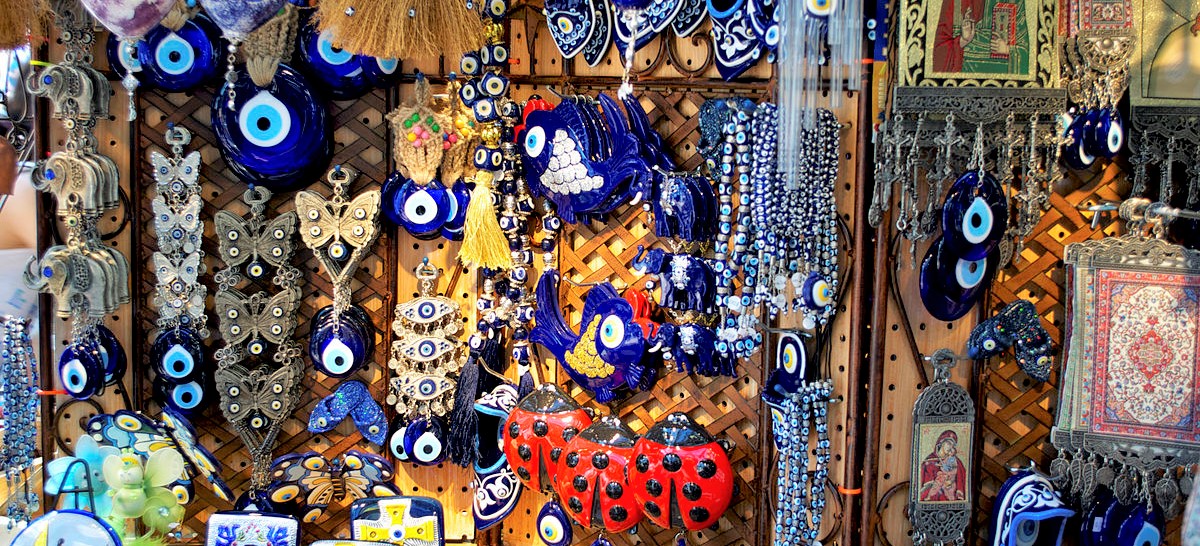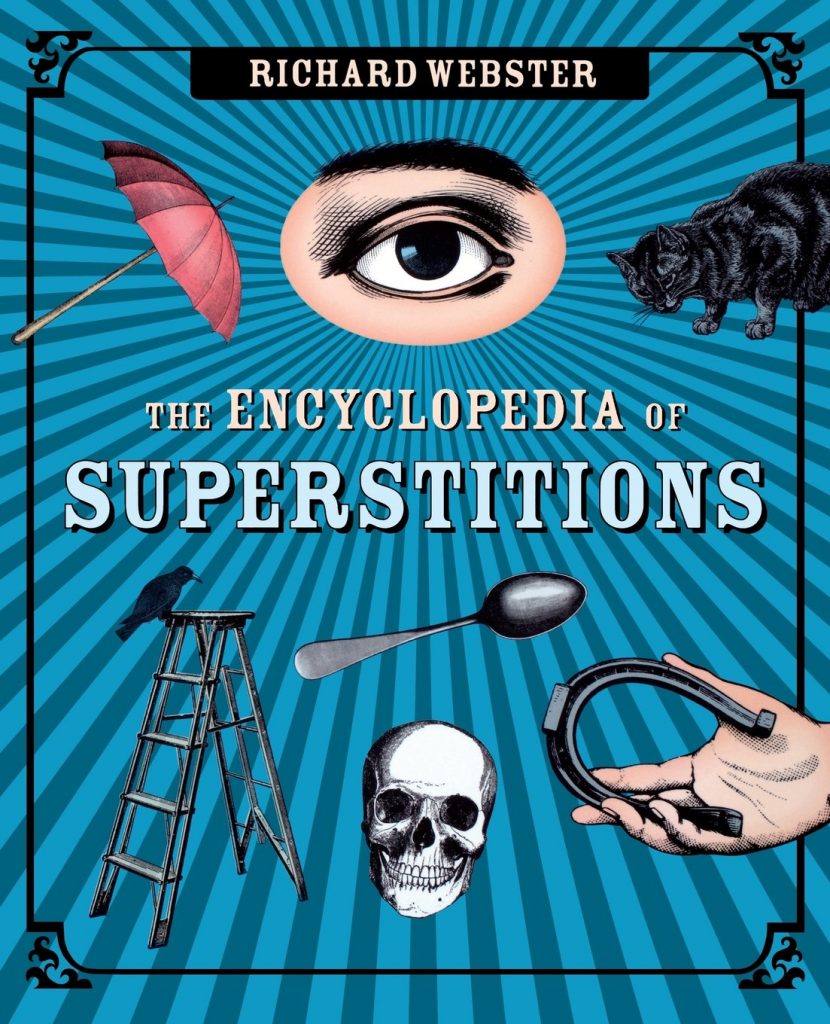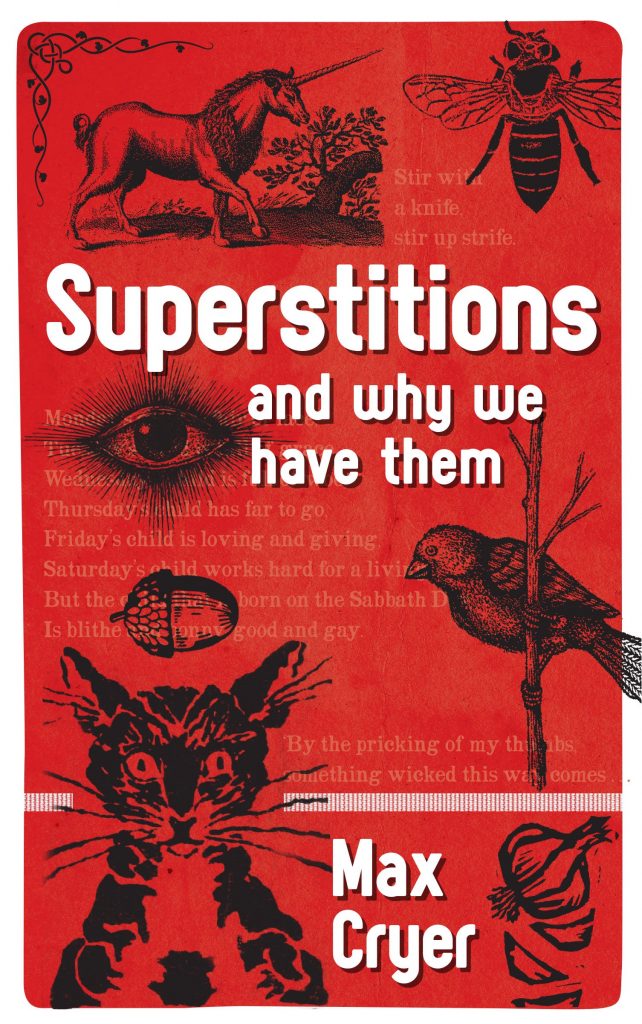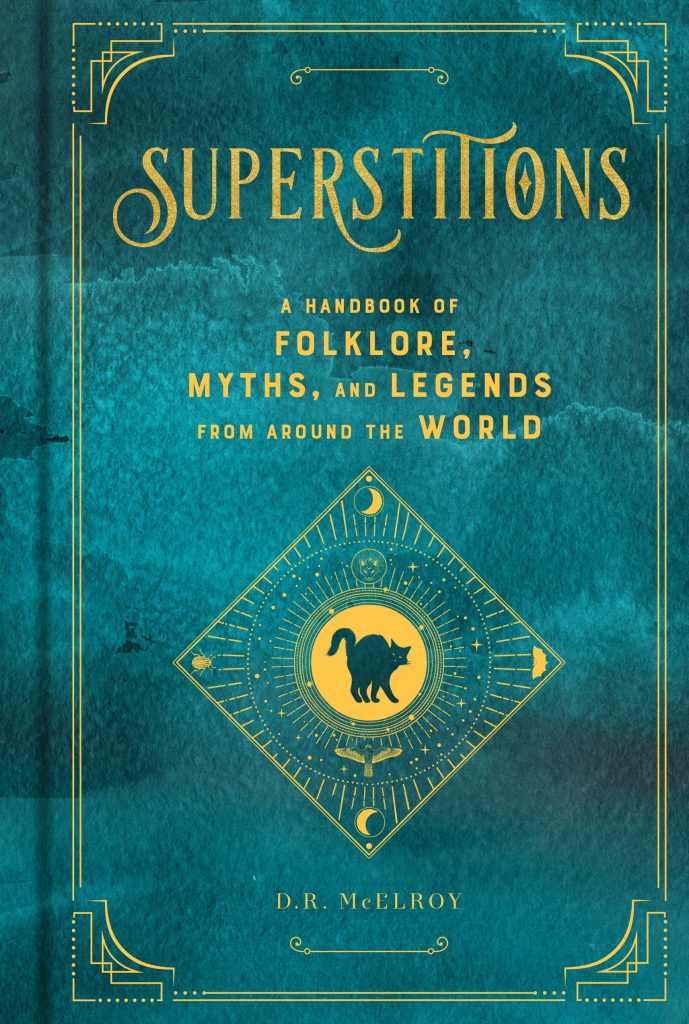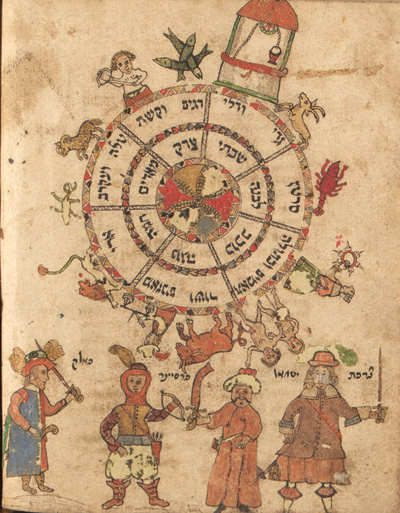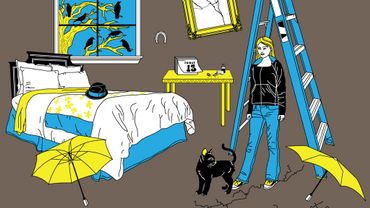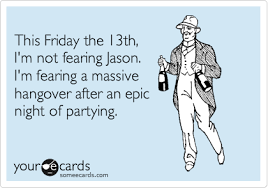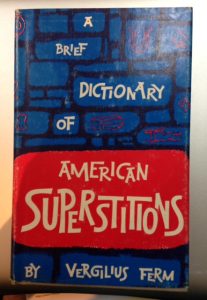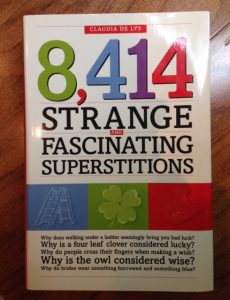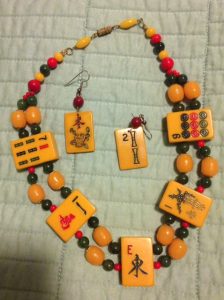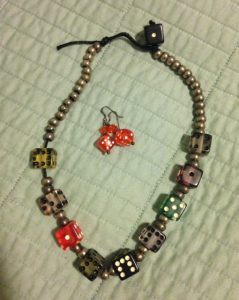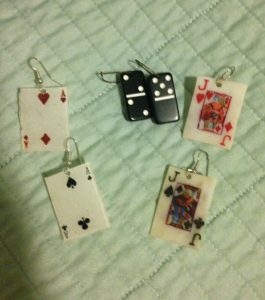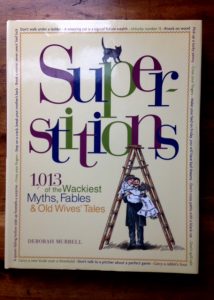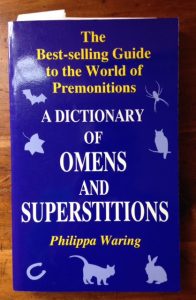By definition, superstitions are irrational beliefs that objects, actions, or circumstances not logically related to an outcome nevertheless influence those outcomes. Every Friday the 13th, I think of superstitions. In the past I’ve blogged about superstitions related to Fridays and to 13s. The superstitions below have nothing to do with the date directly, but there is a belief that negative things happening on Friday the 13th are worse than they would be on other dates.

There are myriad ways to slice and dice the universe of superstitions, including by country or by topic (e.g., love and marriage or hearth and home). Indeed, there are whole books of superstitions out there, and who knows what’s on the internet. But anyone wishing to pursue the topic can do so easily.
Clearly, this blog can give you only a tiny taste of the superstitions out there. So here you go, alphabetically:
A

- April 1, April Fool’s Day
- To be fooled by a pretty maiden means the man will marry or befriend her.
- To lose one’s temper over a practical joke will bring bad luck.
- A wedding on this day means the woman will be the family boss.
- Being born on this day means lucky in business and unlucky in speculation.
- Apron Dropping
- A girl might meet her fiancé.
- It may signify having two husbands.
- It might mean illness or early death.
- It might mean many children or no children.
- It may mean spinsterhood.
- Perhaps it portends desertion by a husband.
B

- Bats are very good omens, denoting happiness, peace, long life, wealth, and virtue.
- Birds are associated with both good and bad spirits, and are portents of things to come.
- A bird in the house or tapping on a window is an omen of death.
- Injuring a robin or disturbing its nest brings bad luck.
- A friendly robin is a portent of a long, hard winter.
- The first robin seen in spring portends good luck if it flies up, bad luck if it flies down.
- A robin’s nest near the house brings good luck.
- Seeing a robin in the morning portends a visitor the same day.
- A swallow nesting in the eaves of a house brings good luck.
- A swallow abandoning its nest is a sign the house will burn down.
- A swallow skimming near the ground is a prediction of rain.
- If a sparrow builds a nest under your window, you will take a trip.
- Turtle doves near the house prevent rheumatism.
- Eagles are said to carry off lambs and small children.
- The cry of a peacock under a window predicts a death in the house.
- Seeing a hawk is an omen of victory or success.
- Seeing a crow in flight is time to make a wish; if the crow doesn’t flap its wings, the wish will come true.
- Magpies (or jackdaws or crows, depending on where you live) mean different things depending on how many you see:
- One for sorrow,
Two for joy,
Three for a girl,
Four for a boy,
Five for silver,
Six for gold,
Seven for a secret never to be told.
- One for sorrow,
- To break the curse of seeing a lone magpie, salute the magpie.
- Bread
- If bread falls butter side down, hungry company will come seeking food.
- Eating bread crusts will make your cheeks rosy.
- Two people saying “bread and butter” after someone or something comes between them will break the spell of bad luck.
- Waving bread and sugar around a wound will make it heal faster.
C

- Cards
- A black ace falling on the floor during a bridge game is a sign to stop playing.
- Singing during a card game is bad luck.
- It’s unlucky to play cards on a bare table.
- Cats
- A cat washing its face is a sign of a visitor coming.
- A black cat crossing one’s path is an omen of very good or very bad luck, depending on the culture.
- A strange cat following you or making a home with you brings good luck.
- If you wake up to a cat on your chest, it means the cat was under the influence of evil spirits and was trying to steal your breath as your slept.
- Cutlery
- If a knife falls on the floor you will have a gentleman visitor.
- If a fork falls, it will be a lady visitor.
- Crossing knife and fork is a bad omen.
D

- Days of the Week
- Good or bad luck depends on the day of the week.
- Monday for health
Tuesday for wealth
Wednesday the best day of all
Thursday for crosses
Friday for losses
Saturday no luck at all
- Monday for health
- A child’s entire life is influenced by the day of the week on which they were born.
- Monday’s child is fair of face
Tuesday’s child is full of grace
Wednesday’s child is full of woe
Thursday’s child has far to go,
Friday’s child is loving and giving,
Saturday’s child works hard for a living,
And the child that is born on the Sabbath day
Is bonny and blithe, and good and gay.
- Monday’s child is fair of face
- Good or bad luck depends on the day of the week.

- Dogs
- A yellow dog happening to follow your tracks is a sign of good luck.
- A dog howling in the night, especially at the moon, is a harbinger of death.
- A dog predicts rain by lying on its back or eating grass.
E
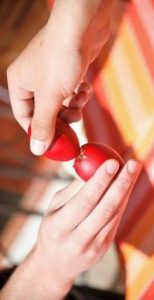
- Ears
- Sailors held the belief that a pierced ear with a ring in it improved eyesight.
- More generally, piercing a child’s ears will improve eyesight.
- Size
- Small = stingy
- Large = generous
- Long = long life
- An itching left ear portends sadness or bad luck; itching right ear means someone is speaking well of you.
- Eggs
- Two yolks in one egg means great financial prosperity is on the way.
- Refusing an Easter egg is an invitation to lose the friendship of the person offering it.
- Rabbits lay eggs at Easter time.
- Eggs blessed at Easter are supposed to ward off illness.
- When cracking Easter Eggs with a friend, the one whose egg cracks first will have good fortune.
- Eyes
- If your right eye twitches, you are going to hear good news.
- A twitching eyelid means someone is thinking fondly of you.
- A person with brown/ blue/ hazel/ green/ grey eyes brings bad luck.
- A person with heterochromia (eyes different colors) is a witch or a demon.
- Grey or blue eyes can see the future.
F

- Fingers
- Friends crossing index fingers over one another and making a wish will have their wish granted.
- Crossing your middle finger over your index finger either brings good luck or is a sign of lying.
- A person with a ring finger longer than the index finger is sure to be wealthy.
- If a person points a finger in the direction of a graveyard, they must bite their finger to avoid inviting death.
- Fingernails
- Broad nails show that a person is generous.
- Long fingernails reveal a lack of thrift.
- Short fingernails mark a liar.
- Specks on fingernails correspond with the number of lies told.
- Cutting a baby’s nails before the first birthday means the child will become a thief. (Bite them off instead.)
- Cutting nails on Friday is bad luck.
- Cutting the nails of a sick person means that person will never get well.
- Funerals
- Handkerchiefs used to wipe tears at a funeral must be buried with the coffin or thrown away.
- Singing, laughing, or talking too loudly at a funeral will wake the dead.
- Not crying and singing funeral hymns loudly enough will anger the recently departed and wake the dead.
- A man not wearing a belt to a funeral will bring death home with him.
G

- Gloves are not good!
- Picking up a glove is to risk bad luck.
- Dropping a glove brings bad luck.
- Giving someone gloves invites the breakup of the friendship.
- Hitting someone with a glove, even accidentally, means wishing for their death.
- Graves
- Dig graves facing east toward Gabriel when he blows his horn.
- Tools used to dig a grave should be left nearby for several days.
- If someone shivers for no apparent reason, someone is walking over his/her grave.
- Open graves are ill omens.
- Leaving the site of a grave before the gravediggers lower the coffin means another death will follow.
- Some cultures require a corpse to be buried in a standing position, holding weapons at the ready.
- Gifts
- Sharp objects given as gifts will turn on their new owner.
- Giving certain numbers of objects (such as flowers or cookies) is unlucky, varying widely around the world.
- In some areas, giving any unreciprocated gifts is unlucky.
- Most of these gift taboos can be avoided by repaying the giver with a symbolic trifle, such as a penny or a piece of bread.
H

- Hands
- An itchy right hand means money is coming.
- An itchy left hand means money is slipping away.
- Rubbing an itchy left hand on wood and wishing for money will break the spell of losing.
- An itchy right hand means that a friend is coming.
- Hand itching means you will shake hands with a stranger.
- Itchy hands also means that you will be entertaining company.
- Itchy palms means the receipt of unexpected money.
- Every town and village in the world seems to have a different variation of hand signs to ward off evil.
- Thumb holding middle and ring finger against the palm with other fingers extended.
- Holding the hand with the palm flat and all fingers pointed forward, folding each finger against the palm separately and sequentially.
- Tucking the thumb between the index and middle finger with all fingers pulled into the palm.
- Binding anyone’s hands together will condemn them to a life of misfortune.
- Folding or crossing one’s hands causes infertility.
- Hens
- Setting a hen on the first Monday of the month brings good luck.
- Setting hens on Sunday night brings successful hatching.
- If 13 eggs are set, 12 will be pullets and 1 will be a rooster.
- Long eggs hatch roosters; round eggs hatch pullets.
- Hiccups
- Having the hiccups means someone is remembering you fondly.
- Each hiccup is an attempt by a demon to draw your soul from your body.
I

- Ironing
- If the tail of a man’s shirt is ironed (or starched) will make the man harsh.
- An ironing board falling across a door is an omen of death.
- Ironing the backs of clothes is bad luck.
- Injury or Illness
- Stepping on a crack will break your spine.
- Sleeping with wet hair will make you sick.
- Women sitting on bare cement will become infertile.
- If your shadow falls on a graveyard or a funeral procession, you will become gravely ill.
- Blowing in a baby’s mouth will cure colic.
- The presence of a net beneath a trapeze or high-wire act will cause the performers to injure themselves or fall.
J

- Jar of water with a knife in it behind the door will protect a building against the devil.
- July 25, wet or dry, is the day to plant turnips.
- Jumping
- Jumping over a baby means they won’t grow very tall.
- Couples jumping over bonfires together will have peace and good fortune for a year.
- Jumping exactly as the clock strikes midnight for New Year’s will bring good luck in the coming year.
K
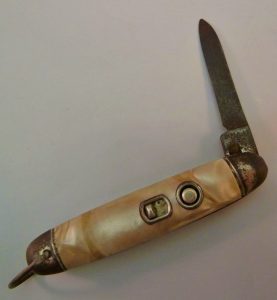
- Knife
- If someone gives you a knife it will cut the friendship unless you “buy” it by giving a penny, pin, etc.
- Leaving a penknife open brings bad luck.
- Handing an open knife to someone will lead to a quarrel.
- Knocking on Wood
- Knocking on wood before starting a project is inviting good luck.
- Knock on wood after bragging/boasting to prevent future failure.
L

- Ladybug / Ladybird
- It’s bad luck to kill a ladybug.
- A ladybug landing on you will bring good luck.
- A ladybug flying off you will take away all your troubles with her.
- More than 7 spots on a ladybug’s wing means famine.
- Fewer than 7 means a good harvest.
- Make a wish with a ladybug in your hand and the direction she flies shows the direction your luck will come from.
- Lips
- Itchy lips means someone is speaking ill of you.
- Itchy upper lip, someone tall will kiss you
- Itchy lower lip, a short person will kiss you.
- If you bite your lip while eating alone, you have a great kiss ahead.
M

- Marriage
- Unmarried people who sit at the corner of a table will never get married.
- Girls who want to get married should write the names of three prospective spouses on slips of paper and slide them under their pillow. She then discards one at night, one in the morning, and the remaining paper will have the name of her future spouse.
- Married women are very lucky wedding guests. The longer she has been married, the more luck she brings to the new couple.
- A man who walks between two women will have an unhappy marriage.
- Moles or Warts
- On the forehead near the hairline is a sign of bad fortune.
- On the chin or ear is a sign of wealth.
- On the breast is a sign of poverty.
- On the throat is a sign of good luck.
- A mole on your arm, live on a farm.
- Having lots of moles indicates future wealth.
- Mirrors
- Breaking a mirror brings seven years of bad luck.
- Looking at your reflection in a broken mirror brings permanent bad luck.
- Standing between two mirrors allows spirits to steal your soul.
N

- Nine
- Count nine stars for nine nights and on the last night one’s lover will be revealed.
- Find nine peas in one pod, hang it above the door, and the next person through the door will be one’s spouse.
- Nails
- A nail dropped on the floor can only build crooked houses.
- Carrying an iron nail will ward off evil influences and demons.
- Looking at a coffin nail while carrying a body to a graveyard invites death.
- A rusty nail stuck through a lemon will keep away the evil eye.
O

- Omens of Misfortune
- Spilling salt on the table.
- Burning bread.
- A rooster crowing at night.
- Killing a spider.
- Stepping over a snake.
- Dropping a comb.
- Stepping on sidewalk or road cracks.
- Laughing before breakfast.
- The number 13.
- Owls
- Hearing a screeching owl is an omen of bad luck.
- An owl perched on a house predicts death to someone within.
- In Wales, the hoot of an owl signaled that an unmarried girl had surrendered her chastity.
- Owls are sacred in some parts of India because their eyesight is phenomenal.
- Owls signal approaching death.
P
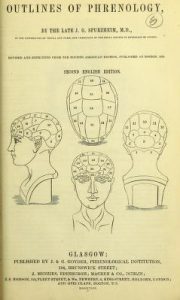
- Pearls
- A ring set with a pearl is unlucky.
- Pearls signify tears.
- A gift of pearls will bring tears and sadness to the recipient.
- Finding a pearl in an oyster is a sign of good luck.
- Phrenology
- A high forehead is a sign of a reflective mind.
- A high forehead is a sign of leadership.
- Large eyes signify benevolence and wonders
- A wide skull indicates pugnaciousness.
- Large heads contain large brains, signifying high intelligence.
Q
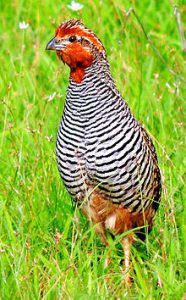
- Saying the word “quiet” will cause all hell to break loose.
- Quail
- Seeing a quail is a sign that a goal can be attained only if the seer acts immediately.
- Seeing a quail in flight is an omen of danger or death.
- Dreaming of a quail is a sign that love, good fortune, and victory are coming.
- Quarters
- Putting a quarter into a pot of black-eyed peas will bring good luck and money.
- Adding a quarter to a tip jar will make it fill faster.
- Tucking a quarter into a purse or wallet given as a gift means it will always have money in it.
R

- Red Hair
- Redheads are emotionally unstable and of terrible temper.
- A redhead who tends a cheese vat will produce curd not fit to eat.
- The appearance of a white horse heralds the appearance of a red haired girl, and vice versa.
- Seeing a redhead first thing in the morning is a sign of bad luck.
- Rats
- Rats leaving a house signifies bad luck.
- Rats entering a house bring good luck.
- Rats won’t go through a soaped hole.
- Catch a rat, paint it garish colors, and release. It will drive other rats away.
S

- Snakes
- Hanging a snakeskin from the rafters will protect a house from fire.
- Killing the first snake you see every year will guarantee victory over any foe.
- Seeing a snake cross one’s path or dreaming of a snake are bad luck.
- Pregnant women who are frightened by a snake will give birth to a child with a constricted neck.
- A snake will never bite a pregnant woman.
- Tying a snakeskin around the waist of a woman in labor will ease childbirth.
- Feeding women in labor a drink containing the powdered rattle of a rattlesnake will ease childbirth.
- Carrying a snakeskin is generally beneficial to health, effective against headaches and extracting thorns from the skin.
- Carrying a snake tooth will ward off fever.
- Carrying a snake tooth is lucky when gambling.
- To avoid getting bitten by a snake, wear an emerald.
- When a snake’s head is severed, it will not die till sunset.
- Singing
- If you sing before breakfast, you will cry before the day is done.
- If you sing before you dress, you’ll have trouble before you undress.
- If you sing before seven, you’ll cry before eleven.
- If you sing before you eat, you’ll cry before you sleep.
- Sailing
- It is unlucky to have an umbrella bought aboard.
- It is unlucky to drive nails on Sunday.
- Whistling aboard ship brings bad luck.
- If a bee or small bird lands on the ship, it means good luck.
- If a hawk, owl, or crow lands in the rigging, it means bad luck.
- A horseshoe nailed to the mast protects against witches.
- It is unlucky to set sail on Friday, lucky to set sail on Sunday.
T
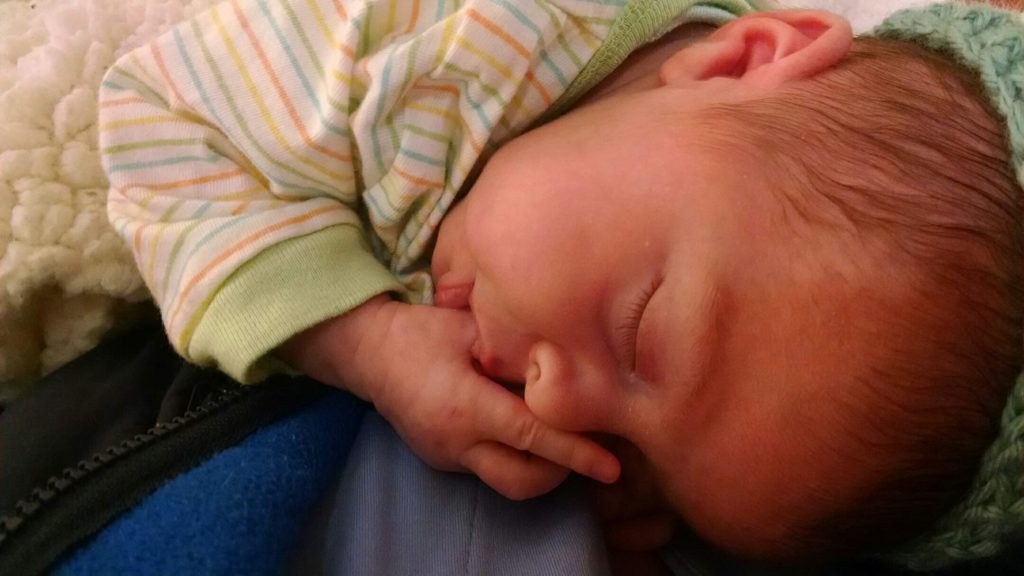
- Thumbs
- A baby who sucks its thumb will grow up to be hideous.
- A thumb turned backward indicates an inability to save money.
- Thumb pricking means something bad is coming along.
- Thumb itching indicates visitors are coming.
- Three
- Closely associated with the Holy Trinity in several world religions: Christianity, Hinduism, Islam.
- Some pagan traditions celebrate the trinity of land, sea, and air to make up earth.
- Third time lucky/third time’s the charm.
- A person will resurface three times before drowning.
- If three people make up a bed, one of them will fall ill.
- Good things and bad things come in threes.
- Theater
- Shakespeare’s Macbeth is so unlucky that people avoid saying the name in a theater, referring to “the Scottish play” instead.
- Whistling onstage or backstage is bad luck.
- Wishing a performer good luck will bring the opposite, hence the common “Break a leg!” wish before going onstage.
- A terribly dress rehearsal means the performance will be excellent, and vice versa.
- Failing to salute the resident ghost (every theater has at least one) will cause it to be angry and take revenge.
U

- Umbrellas
- Carrying an umbrella will ward off rain.
- Opening an umbrella in the house is bad luck.
- Holding an open umbrella over your head in the house will lead to your death within a year.
- Upside Down
- Turning a picture upside down brings bad luck to the person or place in the picture.
- An upside down photograph or picture turned to the wall invites lurking evil spirits to attack the subject of the picture.
- Turning a photo of a person to face the wall or the floor will protect you from evil influences caused by that person.
- Slippers or shoes left upside down on the floor will cause trouble on the next journey.
- Underwear
- Wearing new underwear on a first date will doom the relationship.
- Wearing underwear inside out will improve test or exam scores.
V

- Visiting
- Visit on Monday and you’ll be visiting out every day of the week.
- Guests, like fish, should be thrown out after three days.
- Violets
- Violets grow where tears have fallen.
- Drinking tea made from violet petals cures heartbreak.
- Dreaming of violets means you’ll come into money or marry someone younger.
- When violets bloom in the autumn, an epidemic is coming.
W

- Washing
- Wash and wipe together, live and fight together.
- If a woman gets wet while washing clothes, she will marry a drunkard.
- A woman who wants beautiful hair should wash it in water from March snow.
- Washing laundry on Saturday or Tuesday is bad luck.
- Whistling
- A whistling girl and a crowing hen always come to no good end.
- If little girls whistle they will grow beards.
- Whistling in the house invites bad luck.
- If someone whistles inside a house, they will become financially irresponsible and lose money.
- Weddings
- A bride jumping out of bed and landing on both feet on her wedding day bodes well for her married life.
- The bride and groom seeing each other before they meet at the altar will doom the marriage.
- An iron horseshoe carried by the bride will bring good fortune to her extended family.
- A thunderstorm during a wedding is an omen of bad luck.
- A snowstorm during a wedding is a lucky omen.
- A Sunday wedding is a good omen.
- A Friday wedding is a bad omen.
- Marrying on the last day of the year is especially auspicious.
- Wearing pearls on your wedding day tempts sorrow, tears, and an unhappy future.
X
Y

- Yawning
- Yawning during prayers is a bad omen.
- Yawning without covering one’s mouth allows the devil entrance.
- Yellow
- Giving yellow clothing as a gift will bring bad luck.
- Wearing yellow clothing to any kind of test will cause a poor performance.
- When speeding through a yellow traffic light, a driver throwing a kiss to the roof of the car will avoid accidents and police.
Z

- Zero is a whole number as well as an even one, and thus a lucky digit.
- Zebra
- Seeing a wild zebra means you are spiritually safe from harm.
- A zebra licking your hand can mean danger is coming or someone is holding onto bad memories.
- The black and white of a zebra indicates good and bad.
- Dreaming of a zebra means one is facing situations that are difficult to control.
- Follow a zebra to find water.
- More stripes on the front legs of a zebra than on the back is an omen of a baby, possibly twin boys
- One zebra is a sign of good luck and blessings. Seeing two zebras in the morning is an omen of illness and maybe two bad harvest seasons.
- A running zebras is an omen of an ample harvest.
Bottom line: The superstitions listed here are shared by many people, but every culture and person has different beliefs. Anything can become a personal superstition if something unrelated is associated in time or place with a dramatic event or outcome (such as lucky socks or particular foods). Consider how someone might come to feel anxious and fear bad things will happen if s/he loses a carved wooden heart. If you are writing about an entirely fictitious culture, you can invent whatever superstitions you like!
